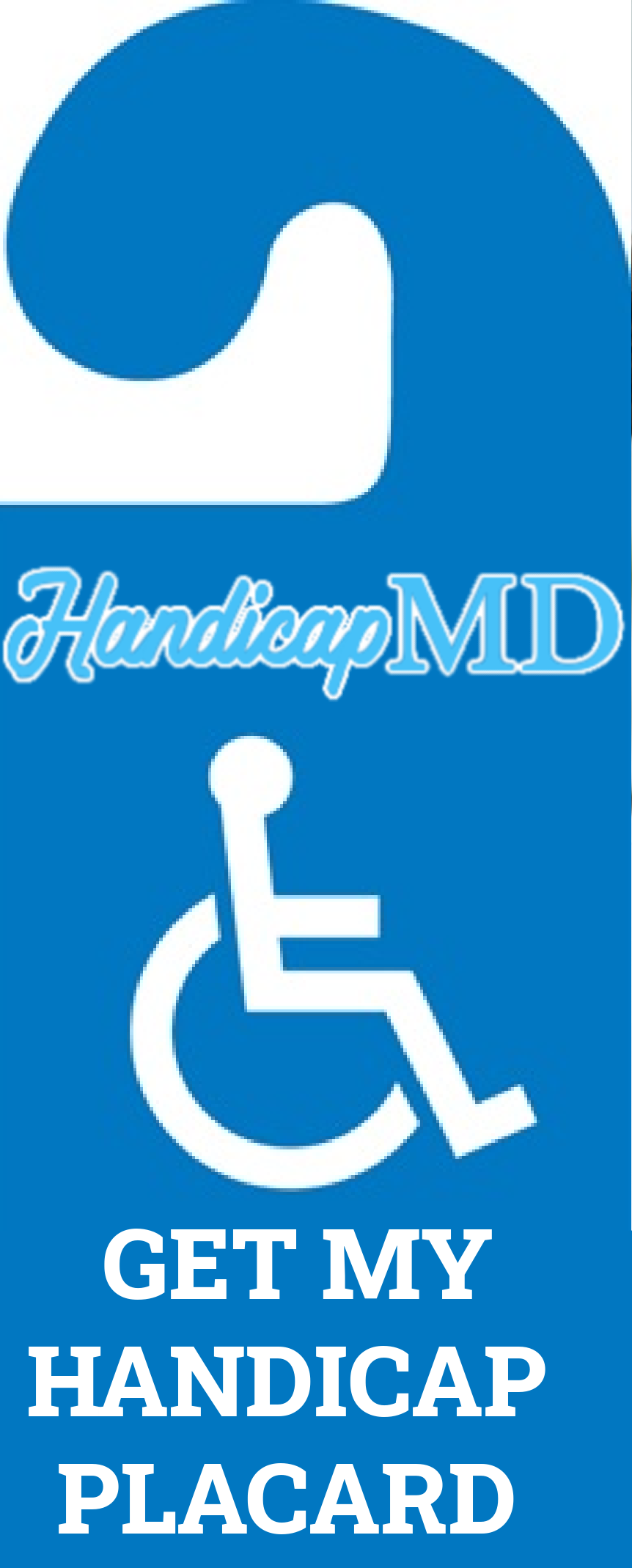
Crucial Insights on Who Can Prescribe Disability Parking Tags
Introduction to Disability Parking Tags
Disability parking permits are essential for individuals facing mobility challenges, providing them with closer access to buildings and facilities. These tags symbolize a societal acknowledgment of the need for inclusivity and support for those with disabilities, ensuring they can navigate public spaces with greater ease and dignity.
Obtaining a disability tag comes with a specific set of rules, particularly regarding who is authorized to issue these tags. For residents of any state looking to secure a disability tag to facilitate easier travel and mobility within the city, it's essential to get an official endorsement from a medical professional who is licensed to practice within the state.
Understanding the Role of a Licensed Physician
In the U.S., a licensed physician is an individual who has successfully completed their medical education, acquired a medical license, is registered with the state medical board, and keeps their credentials current. The number of professionals meeting these criteria is limited, and all states mandate that your disability tag certification must be issued by a physician licensed within the state. This means certifications from physicians in neighboring states, such as Georgia, won't suffice, necessitating a visit to an licensed doctor for the requisite documentation.
In the United States, the role of a licensed physician is critical in ensuring the health and well-being of individuals through the provision of medical care, diagnosis, and treatment. To become a licensed physician, an individual must complete several rigorous steps:
Educational Pathway
- Undergraduate Education: Aspiring physicians typically complete a bachelor's degree with a strong emphasis on pre-medical courses such as biology, chemistry, and physics.
- Medical School: Following undergraduate education, students must attend medical school for four years, where they receive a comprehensive education in various medical disciplines, including anatomy, biochemistry, pharmacology, and clinical medicine.
- Residency Training: After graduating from medical school, physicians undergo residency training in their chosen specialty, which can range from three to seven years. This hands-on training under the supervision of experienced doctors is crucial for developing clinical skills.
Licensure and Certification
- Licensure: To practice medicine, physicians must pass a series of exams, such as the United States Medical Licensing Examination (USMLE) or the Comprehensive Osteopathic Medical Licensing Examination (COMLEX-USA). These exams assess a physician's ability to apply knowledge, concepts, and principles important for patient care.
- State Medical Board Registration: Physicians must be registered with the medical board in the state where they intend to practice. Each state has its own requirements and procedures for licensure, ensuring that physicians meet the specific standards set forth by the state.
- Continuing Education: Maintaining a medical license requires physicians to engage in continuing medical education (CME) to stay updated with the latest advancements in medical science and practice. This ensures that they provide the highest standard of care to their patients.
Role in Disability Tag Certification
In the context of disability tag certification, the involvement of a licensed physician is indispensable. Here's why:
- Verification of Medical Condition: Physicians are responsible for diagnosing and verifying medical conditions that qualify individuals for disability tags. They assess the patient's medical history, conduct examinations, and utilize diagnostic tests to determine the extent of the disability.
- State-Specific Requirements: All states mandate that disability tag certifications must be issued by a physician licensed within that state. This requirement ensures that the physician is familiar with the state's specific regulations and guidelines concerning disability qualifications.
- Documentation and Certification: Once a physician determines that an individual qualifies for a disability tag, they complete the necessary documentation. This includes filling out forms provided by the state's Department of Motor Vehicles (DMV) and certifying that the individual's medical condition meets the criteria for a disability tag.
Challenges and Considerations
Given the stringent requirements for becoming and remaining a licensed physician, the number of professionals meeting these criteria is limited. This limitation can pose challenges for individuals seeking disability tag certification:
- Access to Licensed Physicians: In some regions, particularly rural areas, there may be a scarcity of licensed physicians, making it difficult for individuals to obtain the necessary certification without traveling significant distances. This is exactly why HandicapMD was started.
- Interstate Certification Issues: Certifications from physicians licensed in neighboring states are not accepted. For example, a certification from a physician licensed in Georgia will not suffice for a resident of Florida. This necessitates a visit to a licensed doctor within the individual's state of residence to obtain the requisite documentation.
- Timeliness of Certification: Given the busy schedules of licensed physicians, obtaining an appointment and subsequent certification can be time-consuming. It is important for individuals seeking disability tags to plan accordingly and allow sufficient time for the certification process.
Licensed physicians play a pivotal role in the healthcare system and in the certification of disability tags. Their extensive education, training, and ongoing commitment to professional development ensure that they are well-equipped to assess and document medical conditions accurately. Understanding the role and requirements of licensed physicians can help individuals navigate the process of obtaining disability tag certification more effectively.
Duration of the Certification Process
The willingness of doctors to issue a disability tag can vary. Some may require multiple visits to explore treatment options for your condition, potentially delaying the permit acquisition process. This can be particularly vexing if you've had numerous medical consultations over the years.
Conversely, many physicians are prepared to authorize a disability tag following just one consultation, especially if you provide a comprehensive medical history. If you have been a long-term resident of your area, it's advisable to approach your regular physician for certification.
Virtual Consultations with Physicians
For those concerned about the time it might take to obtain a disability tag, virtual healthcare services offer a viable alternative. Several online platforms now facilitate connections between individuals with disabilities and licensed physicians across the country, enabling consultations via video conferencing. This digital approach can be particularly advantageous for individuals seeking disability tags who may not have easy access to transportation.
Advantages of Virtual Consultations
- Convenience: Virtual consultations eliminate the need for travel, allowing patients to connect with physicians from the comfort of their own homes. This is especially beneficial for individuals with mobility issues or those living in remote areas.
- Time-Efficiency: Scheduling and attending virtual appointments can often be done more quickly than traditional in-office visits, reducing the time needed to obtain necessary certifications.
- Accessibility: Online platforms expand access to licensed physicians, making it easier for individuals to find a doctor who can certify their disability, regardless of their location.
- Privacy: Virtual consultations offer a private and discreet way to discuss medical conditions, with the added convenience of digital document handling.
HandicapMD: Simplifying the Process
HandicapMD is an online platform designed to streamline the process of obtaining disability tags. It provides a comprehensive service that includes an easy online application process and the provision of necessary state DMV disability tag forms, signed and certified by the consulting physician.
How HandicapMD Works
- Online Application: Patients begin by filling out a simple online application form on the HandicapMD website, providing necessary details about their medical condition and needs.
- Virtual Consultation: Once the application is submitted, patients can schedule a virtual consultation with a licensed physician. These consultations are conducted via secure video conferencing, ensuring both privacy and convenience.
- Medical Evaluation: During the virtual consultation, the physician will review the patient's medical history, discuss their current condition, and determine if they meet the criteria for a disability tag.
- Documentation: If the patient qualifies, the physician will complete and sign the required state DMV disability tag forms. These forms are then provided to the patient electronically.
- Submission: Patients receive the signed and certified DMV application via email, which they can then submit to their local DMV office to obtain their disability tag.
Benefits of Using HandicapMD
- Reliability: HandicapMD ensures a reliable resource for patients in need, connecting them with licensed physicians who are qualified to prescribe disability tags.
- Efficiency: The platform's streamlined process reduces the time and effort required to obtain necessary certifications, making it easier for patients to get the assistance they need.
- Support: HandicapMD provides ongoing support to patients throughout the application process, answering questions and ensuring that all documentation is correctly completed and submitted.
Virtual consultations with licensed physicians offer a practical and efficient solution for individuals seeking disability tags. Platforms like HandicapMD simplify the process, providing comprehensive services that include easy online applications, private consultations, and the timely provision of signed and certified DMV forms. By leveraging digital healthcare services, patients can overcome barriers to access and obtain the support they need with greater ease and convenience.
Advantages of Online Physician Services
Opting for an online service to connect with a prescribing physician offers several benefits, especially for those currently unable to utilize disability facilities. Despite the relatively straightforward application process, physically accessing a physician's office can still present challenges for disability individuals.
One significant advantage of online services is the flexibility they offer, allowing you to consult with a physician according to your own schedule, without the need to book appointments well in advance. This not only streamlines the process but also accelerates the receipt of your disability tag.
Moreover, these services afford you the opportunity to select a physician that best suits your preferences, whether in terms of gender, background, or experience, ensuring a more comfortable consultation. Importantly, we are dedicated to connecting you with physicians who are already committed to assisting individuals with disabilities, sparing you the effort of seeking out a cooperative doctor.
Authorized Professionals for Prescribing Tags
Predominantly, medical doctors, including specialists in fields related to mobility impairments, are authorized to prescribe these tags. The role of healthcare providers extends beyond diagnosis to include advocacy and support in navigating the application process.
The Role of Medical Professionals
Medical professionals play a pivotal role in the disability tag system. They not only assess and verify the applicant's medical condition but also ensure that the documentation accurately reflects the individual's mobility challenges. This section delves into the responsibilities of doctors, occupational therapists, and other healthcare providers in this process.

Eligibility Criteria for Disability Parking Tags
Eligibility hinges on specific medical conditions that significantly impair mobility. Understanding the legal framework and guidelines set by local and state authorities is crucial for applicants to ensure compliance and successful acquisition of these tags.
Eligibility for disability parking tags hinges on specific medical conditions that significantly impair mobility. Understanding the legal framework and guidelines set by local and state authorities is crucial for applicants to ensure compliance and successful acquisition of these tags.
Common Eligibility Criteria
Although specific criteria can vary from state to state, there are several common medical conditions and circumstances that generally qualify an individual for a disability parking tag:
- Non-Ambulatory Disabilities: Individuals who are unable to walk without the assistance of another person, a wheelchair, crutches, a cane, or other assistive devices.
- Severe Respiratory Conditions: Conditions that significantly impair breathing, such as chronic obstructive pulmonary disease (COPD), emphysema, or severe asthma.
- Cardiovascular Diseases: Severe heart conditions that limit an individual’s ability to walk or cause symptoms like chest pain and shortness of breath.
- Loss of Limb or Use: Individuals who have lost one or more limbs or have lost the use of one or more limbs.
- Arthritis and Joint Conditions: Severe forms of arthritis or other joint conditions that restrict movement and walking ability.
- Neurological Disorders: Conditions such as multiple sclerosis, cerebral palsy, or Parkinson’s disease that affect motor function and mobility.
- Vision Impairment: Severe vision impairments, including legal blindness, that affect mobility.
State-Specific Guidelines
The criteria and process for obtaining a disability parking tag can vary significantly from one state to another. This section explores these variations, highlighting the key differences in requirements, application processes, and tag types across regions, helping applicants understand the specific guidelines applicable to their locality.
Application Process for Disability Parking Tags
The application process involves a step-by-step submission of required documents, including medical certification. Applicants must adhere to state-specific requirements, which may vary, to obtain their tags successfully.
Types of Disability Parking Tags
Understanding the differences between temporary and permanent disability parking tags, along with the various forms such as placards, plates, and stickers, is essential for applicants. Each type serves a distinct purpose and duration, tailored to the individual's needs.
Temporary Disability Parking Tags
Temporary disability parking tags are issued to individuals with conditions that significantly impair mobility but are expected to improve over time. These tags are typically valid for a limited period, often ranging from a few months to a year.
- Eligibility: Conditions like post-surgery recovery, temporary injuries (e.g., fractures), or short-term illnesses.
- Duration: Validity period usually ranges from 1 to 6 months, extendable upon re-evaluation.
- Renewal: Requires re-certification by a licensed physician if the condition persists beyond the initial period.
- Usage: Can be used in any vehicle in which the disabled person is traveling.
Permanent Disability Parking Tags
Permanent disability parking tags are issued to individuals with long-term or lifelong conditions that permanently impair mobility. These tags provide ongoing access to disability parking spaces without the need for frequent renewals.
- Eligibility: Chronic conditions such as severe arthritis, cardiovascular diseases, significant mobility impairments, or loss of limb function.
- Duration: Typically valid for several years, with a renewal process that may involve periodic re-certification.
- Renewal: Depending on the state, renewals may be required every 2 to 5 years, sometimes with updated medical certification.
- Usage: Can be used in any vehicle in which the disabled person is traveling.
Types of Disability Parking Tags
There are several forms of disability parking tags, each serving different purposes and needs:
Placards:
- Temporary Placards: Issued for temporary disabilities; easily moved between vehicles.
- Permanent Placards: Issued for permanent disabilities; also portable and can be used in different vehicles.
- Display: Hung from the rearview mirror when the vehicle is parked in a disability parking space.
License Plates:
- Permanent Plates: Issued for vehicles that are primarily used by or for the transportation of the disabled individual.
- Identification: Plates include a universal disability symbol, making them easily recognizable.
- Transferability: Usually tied to the specific vehicle and not easily transferable between vehicles.
Stickers:
- Temporary or Permanent Stickers: Used in some states, affixed to regular license plates to indicate disability status.
- Usage: Offer a less conspicuous alternative to placards and plates.
How to Choose the Right Tag
Choosing the appropriate type of disability parking tag depends on the individual's needs and circumstances:
- Temporary vs. Permanent: Determine whether the condition is short-term or long-term.
- Vehicle Usage: Consider whether the individual frequently switches between vehicles or uses a specific vehicle primarily.
- State Regulations: Each state may have specific options and regulations, so it's important to consult local DMV guidelines.
Renewal and Expiration of Tags
The renewal process is an important aspect of maintaining the validity of disability parking tags. Individuals must be aware of the expiration dates and the procedures for renewal to avoid penalties and ensure continuous access to designated spaces.
Misuse and Legal Consequences
Misuse of disability tags is a serious offense, leading to legal penalties. Awareness of the common forms of misuse and the associated legal consequences is vital for all tag holders and the general public.
Accessible Parking Spaces
This part of the article explains the requirements and regulations surrounding accessible spaces, including their design, location, and the legal standards that mandate their availability in public and private facilities.
Impact of Technology on Accessibility
Technology is increasingly playing a role in enhancing accessibility for individuals with disabilities. This section explores how digital tags and mobile applications are revolutionizing the way disability tags are issued and used, making the process more efficient and user-friendly.
Benefits of Having a Disability Tag
The benefits extend beyond physical accessibility; they also offer legal protections and contribute positively to the emotional and social well-being of individuals with disabilities.
Challenges and Considerations
Despite the advantages, challenges such as the limited availability of spaces and the need for greater public awareness and sensitivity towards individuals with disabilities remain prevalent.
Technological Advancements and Tags
The integration of technology, such as digital tags and apps, promises to enhance the effectiveness and convenience of disability tags, heralding a future of improved accessibility and innovation.
Accessibility Laws and Disability Rights
Familiarity with accessibility laws, including the Americans with Disabilities Act (ADA), and global perspectives on disability rights is crucial for understanding the broader context of disability tags.
Who Can Prescribe Disability Parking Tags?
Revisiting the professionals authorized to prescribe these tags underscores the importance of proper certification and the role of healthcare providers in supporting individuals with disabilities.
Conclusion
This article aims to provide a comprehensive overview of who can prescribe disabled parking permits, from the eligibility criteria and authorized prescribers to the benefits and challenges associated with disability tags, promoting awareness and encouraging compliance.
.png)






